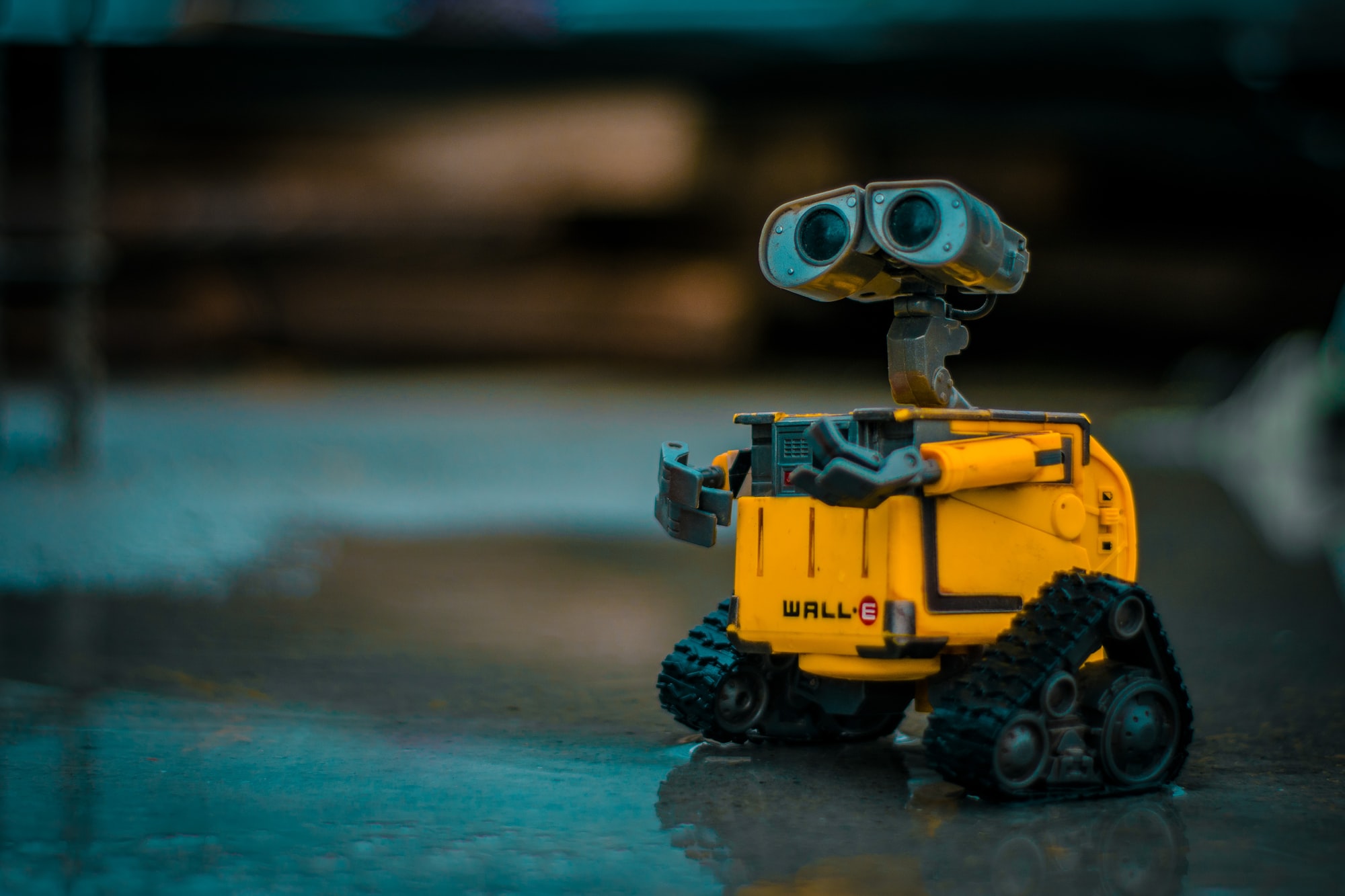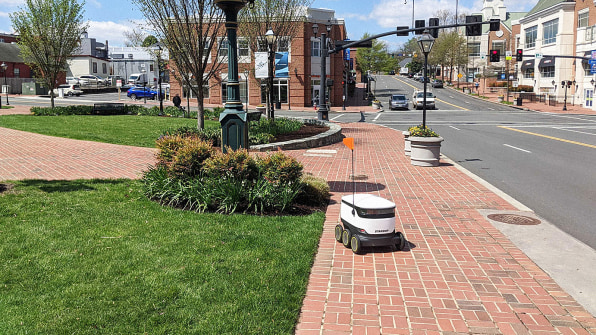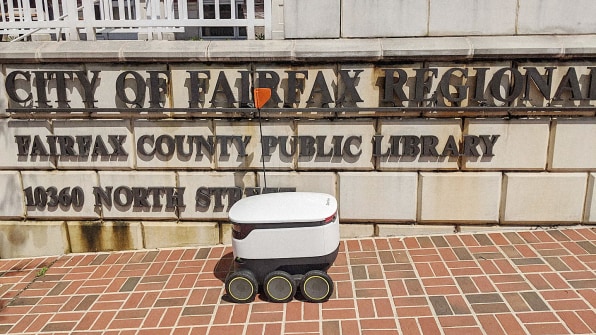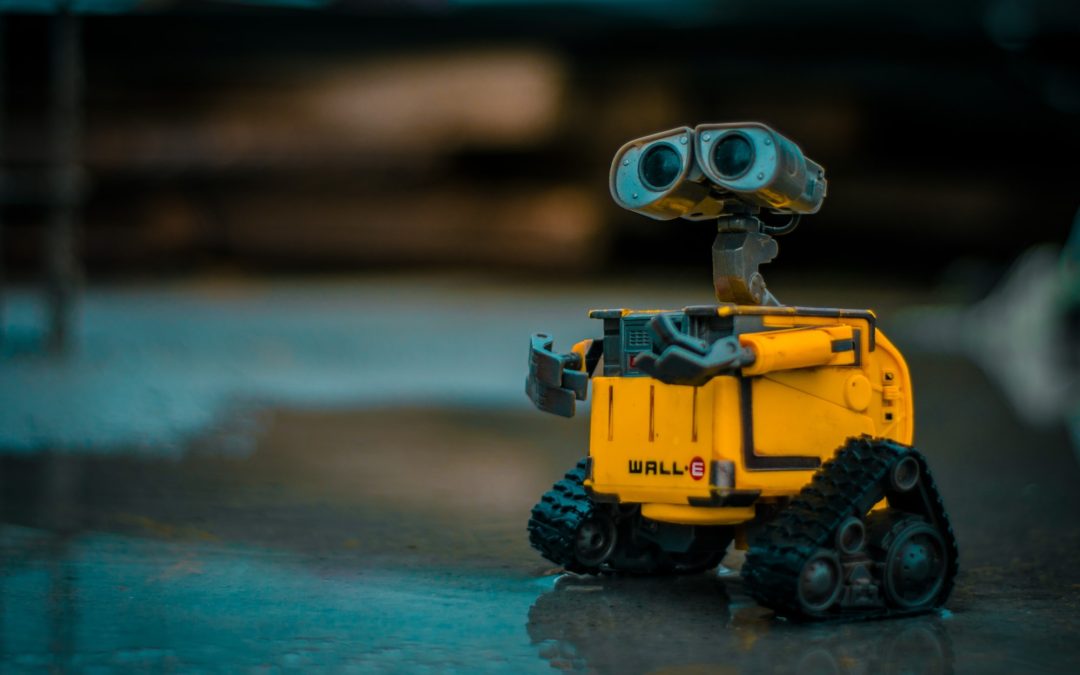
Fairfax, Virginia is the latest city to partner with Starship Technologies, a company that makes small delivery robots and now operates a fleet of 20 in Fairfax, making deliveries from restaurants to anyone within a small radius, and bringing groceries to the elderly and others at high risk from COVID-19.
The city government decided to fast-track approval for the robots partly as a way to help local restaurants survive.
“When COVID-19 hit, and all of our local businesses in the City of Fairfax were required to start enforcing social distancing rules and regulations, or restrict their service to grab and go, or just close altogether, we were thinking of ways that we could really help the business community,” says Chris Bruno, economic development director for the City of Fairfax.
Starship brought a fleet of robots to the campus of a local university, George Mason University, last year, so the city was familiar with the technology.

Customers order groceries or restaurant meals through an app, then drop a pin where they want the food delivered. As with Uber, an interactive map shows the delivery en route, as the robot travels down sidewalks and crosses streets. (Like an autonomous car, the tiny robot uses sensors, artificial intelligence, and machine learning to navigate. The company’s team monitors the robots remotely and can control them if needed.) When the food arrives—the little bots can carry up to 20 pounds of groceries, or around three bags—the customer uses their phone to unlock the robot and retrieve their order.

The tech is obviously well-suited for the era of social distancing: Without a delivery driver, there’s less contact with the food before it reaches the customer, and both the hypothetical driver and the customer are protected from exposure to germs. When the robot returns to a store or restaurant, it can be easily cleaned.
“We’re happy that these things can be cleaned much more easily than an entire Uber car can,” Bruno says. “You can basically sanitize this thing with Lysol wipe.”
The company has been testing the robots since 2015 and expanded its service in the U.K. town of Milton Keynes in March as the coronavirus was spreading and social distancing was becoming common. It recently started operating in Washington, D.C.; Tempe, Arizona; Mountain View, California; and Irvine, California. Other companies are also expanding autonomous deliveries now. Wing, the drone delivery system developed at Alphabet, is delivering toilet paper, toothpaste, and other essential supplies in a rural part of Virginia and says that orders have steeply increased in the last two weeks. Wing’s drones hover above a customer’s house before lowering the package on a tether and gently dropping it to the ground, all without requiring any customer interaction with the drone.
Reprinted from Fast Company

